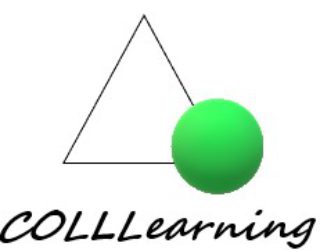a comprehensive bibliography
Michael Robert Matthews on Constructivism
in Science, Philosophy and Education
From Alfonso Lizarzaburu
It is a great pleasure to share with you the bibliography that I have prepared with the work of one of the greatest specialists on constructivism: Michael R. Matthews, honorary associate professor in the School of Education at the University of New South Wales (UNSW), Australia.
Michael is Foundation editor (1990-2014) of the journal Science & Education: Contributions from the History and Philosophy of Science and editor of the HPS&ST Newsletter/Note since 1987. He has degrees from the University of Sidney in Geology, Psychology, Philosophy, History and Philosophy of Science, and Education. His PhD in philosophy of education is from UNSW.
In August 2016 I started to prepare a very extensive bibliography on constructivism (English, French, Italian, Portuguese and Spanish).
Doing this joyful travel I discovered the extraordinary quality and extent of Michael’s contribution in this domain.
I decided then to start publishing his work because I do really think he is an extraordinary guide to know the constructivist landscape on Philosophy, Science and Education.
The influence of constructivism during the last fifty years is overwhelming. In one of his articles he says:
Indeed constructivism has become education’s version of the ‘grand unified theory’.
And in chapter 8 of his book Science Teaching: The contribution of History and Philosophy of Science (New York: Routledge, 2015) he says:
Constructivism as a theory of knowledge and learning has been the major theoretical influence in contemporary science and mathematics education; and in its post-modernist and deconstructionist form, it is a significant influence in contemporary mathematics, literary, artistic, social studies and religious education. Its impact is evident in theoretical debates, curriculum construction, and pedagogical practice in all of these subjects. Constructivism as a psychological, educational and philosophical orientation fuels the learner-centered, teacher as-facilitator, localist, ‘progressive’ side of the educational maths wars, phonics debates, and discovery learning disputes.
It is necessary to know that there are many different points of view and approaches to what constructivism is and how they have been developed by different authors.
Thanks to my friend and maestro Mario A. Bunge, Michael knew that I was preparing a bibliography on constructivism and he sent me a first message on 4 September 2016.
I sent him a draft of the bibliographic file on his work to which he replied on 11 September 2016 saying:
Thank you for your note and your most comprehensive bibliographic file. I have never seen my work aggregated in such an informative way.
He made some corrections and some additions, and I appreciate very much his contribution.
Almost at the end of his message, Michael said:
I will attach for you the Constructivism chapter from my 2015 Routledge book that will give you some idea of my appraisal of the position. I believe its adoption throughout the world as official educational policy […] is a disaster.
Nonetheless, at the end of the same article mentioned above he says:
But the interactive, anti-dogmatic teaching practices supported by constructivism need not be abandoned. […] In brief, what is good in constructivism has long been known in philosophy and in the liberal tradition of education, and that what is novel in constructivism is misguided and dangerous to both education and society.
Why does he think this?
You will find the answer reading his extraordinary contribution during the last 40 years.
004-matthews-michael-r-on-constructivism-mrmrev-aelrev-160922

